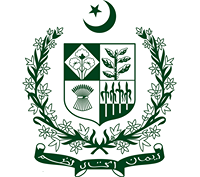Digital Innovation in Education

Digital Innovations
Digital Content: In response of COVID, M/o FE&PT has procured K-12 digital content aligned with SLOs based National Curriculum. The content was procured from top ed-tech firms operating in Pakistan which contains videos and assessments. The content was played on PTV through TeleSchool Transmission during COVID. Afterwards, the same is being disseminated through M/o FE&PT TeleSchool Mobile App and eTaleem Portal as well.
Tele school Mobile Application: Inaugurated by Prime Minister of Pakistan on 22nd March, 2023. The Application is hosting 06 Digital TV Channels, and Video on Demand (VOD) Digital Learning Library. Since inauguration 63,750 users are registered out of which 9171 are Out of School Children. Steps are being initiate to improve the reach and usage for the application.
- eTaleem Portal: During COVID the eTaleem portal has been launched on emergency basis to continue the learning journey for the students at home. The initial portal was only able to play videos through external or 3rd-Party links. The M/o FE&PT has strengthened the portal with the deployment of state-of-the-art Learning Management System and Teacher’s Training System with following modules:
-
-
- State of the art Learning Management System for in-school children.
- Learning Management System for Out of School Children for NFE through ALP content.
- Virtual Teachers Training Institute (VTTI) for online digital certifications.
- The portal has been deployed and customized, its usage has enabled us to get input from the field with real usage for any improvements. Its offline module is also being deployed in AJK & GB in schools with limited or no internet connectivity.
-
-
- Smart Classrooms: 400 tech-enabled smart classrooms have been established at ICT, AJK and GB to equip the schools with tech-based pedagogy. The smart classrooms consist of smart screen, computer, clickers and speakers. eTaleem LMS has been implemented in these classrooms for blended learning, however, AJK & GB are being equipped with offline LMS having digital content and assessments.
- Smart Boards: The Ministry has deployed interactive smart boards for selected schools across lagging districts in all provinces to ensure that students in these areas can benefit from the latest technology. It is a responsive board to improve classroom learning.
- Google Partnership: Established Google Workspace System in partnership with Google for Education in all Public schools (FDE) of ICT with the objective to incorporate google workspace for Education and use of google tools for distance learning and creating a digital infrastructure in schools. Initially, the Google Education Basic has been introduced in all FDE Schools, digital IDs for all students and teachers has been created. 400+ teachers were also certified as Google Level 1 certified. Due to lack of hardware the intervention could not achieve the desired results. In order to get better results, M/o FE&PT is planning to upgrade Google Education Plus in 50 schools where modern IT labs are being established.
- Project Albus (Centre for Excellence): The Google has established a center of Excellence at IMCG F-6/2 and onboard one classroom onto digital platform. Chromebooks, digital tools and trainings were provided to the students and teachers to utilize digital platform in classroom. The project has been completed with significant results. The study has been conducted through collaboration with NUST on its outcomes.
- Blended Learning Pilot Project: Under PSDP, 200 tech-enabled blended learning smart classrooms were established at ICT for three different levels i.e. Primary, Middle and Secondary through top ed-tech firms. The classes were equipped with Screens, Smart Devices, Clickers, LMS and Digital Content. The project has exhausted its life, however, hardware is available with schools to be utilized into other digital interventions.
- 50 IT Labs in ICT Boys Schools (Rural): The objective is to build the computer labs, IT infrastructure and facilities in 50 secondary and higher boys’ schools. The old computer systems and technologies will be replaced with new ones along with accessories and permanent internet connectivity to ensure learning continuity. The students enrolled/ utilizing the computer labs and IT infrastructure and facilities will have better, hands on and advance learning experiences of various subjects including computer science and IT knowledge and skills to compete with the 21st century learning requirements. 50 IT labs are being established with latest computers, connectivity, furniture and renovations etc. The project will be completed before June, 2024.
